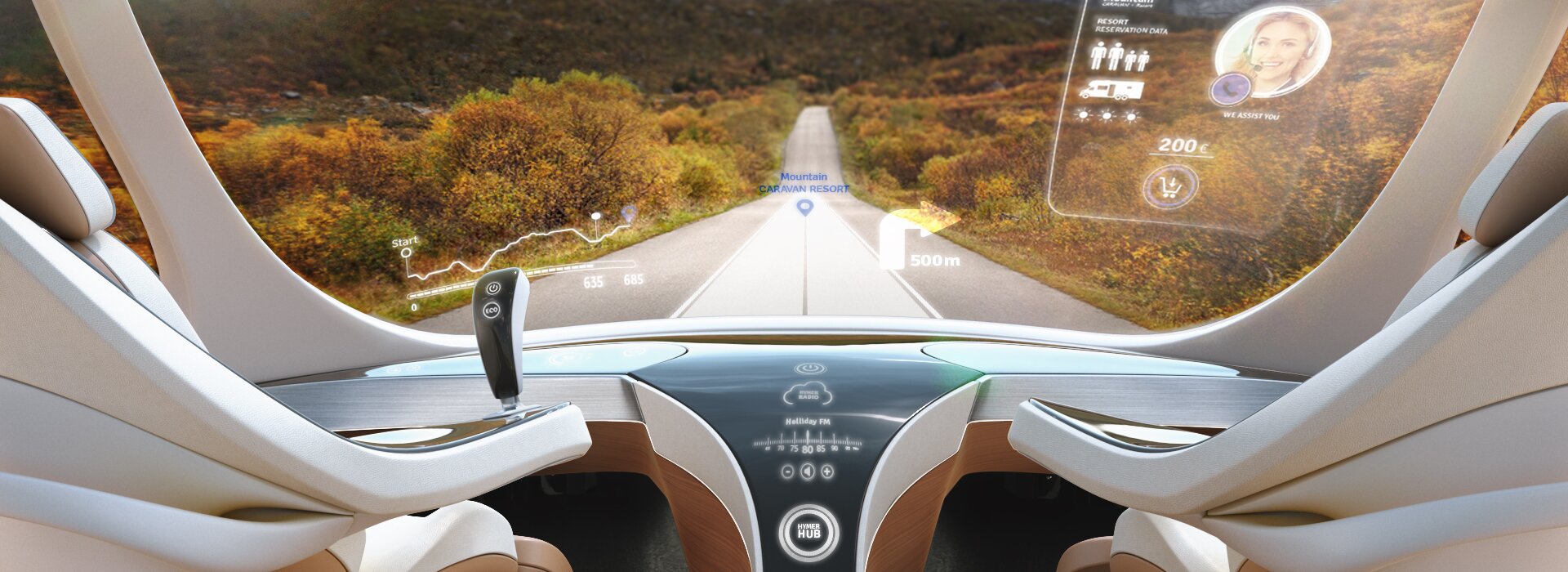Camping 4.0: interconnected and autonomous in the future
Nowadays, almost all campers start their holidays with a navigation system. And even the bulky campsite guide in the glove box has long been replaced with an app. A study on behalf of the Erwin Hymer Group shows: Connectivity will radically change camping over the next decade.
Yet, it will probably still be a long time until campers can enter the coordinates of their vacation destination in the evening, go to sleep and wake up at their campsite with ocean view the next morning. However, many technologies that will together make this vision of the future possible are already coming into use over the next years – and will provide more security and comfort for your camping holiday. This is the conclusion of the study "Connected Mobile Home", published in 2018 by the Erwin Hymer Group.
Study shows three technology trends
The study examined the networking trends within the caravanning sector in three stages: Initially, experts were asked to give their assessment in a workshop; then connectivity trends from the automotive sector were transferred to the market for motorhomes, and, in a third step, current or prospective campers were surveyed. The study, jointly performed with the Center of Automotive Management (CAM), differentiated between three technology fields: interface & networking, driver assistance systems & autonomous driving and mobility services.
The greatest potential: interface & networking
The study predicts excellent growth perspectives for the market of connected mobile homes: From approximately 100 million Euros presently, the annual turnover in Europe is to increase to approximately 300 million Euros by 2025. More than two thirds of this turnover is allotted to the technology field interface & networking.
Increasingly diverse solutions under the keyword "smart camper" will be centrally guided in the coming years – either from a control unit in the vehicle or a mobile terminal device. Some examples:
• Activation of the alarm function in case of gas leak
• Vehicle locking
• Air conditioning
• Transfer of interesting travel destinations to the navigation device
• Online booking of the next campsite.
Touchscreens as well as remote controls and remote prompts for functions such as fresh-water or wastewater level indicators will be standard technological features for the next vehicle generations. Especially functions that promise greater security are important to users such as alarm systems, burglar alarms or GPS locating options in case the motorhome is stolen.
Assistance systems relieve the driver while parking or in traffic jams
Anyone who has been on a long journey to a distant vacation destination appreciates the convenience and security benefit of assistance systems such as side-wind assistance or adaptive distance cruise control. Many of these functions are meanwhile also available for motorhomes. In fact, the sector is poised to make a technological leap in this area: Active lane-keeping assistance and adaptive cruise control will soon be part of the standard repertoire as traffic-jam assistance systems will also manage stop-and-go traffic and thus ensure a pleasant journey. A highway assistance system that allows for partially autonomous driving in order to relieve the driver will also be available in about ten years. Having arrived at the holiday destination, the parking assistance systems manoeuvres the vehicle into tight campsites. 360-degree cameras provide a consistent overview of the vehicle's surroundings.
Mobility services: from ownership to "pay-per-use"
Digitization provides new usage or ownership models. Peer-to-peer motorhome sharing is becoming increasingly popular as it provides relief to owners and makes motorhome usage more efficient. Private owners and users can find each other on web-based sharing portals. Manufacturers will also be able to win over customers in the future with mobility services: Planning and driving assistance systems enhance the quality of the holiday experience and will be just as much part of the offer as exclusive campsites for customers at especially desirable destinations. In the age of networking, campers will no longer arrive at full campsites due to non-vacancy. It will be possible to activate only specific services online as needed: "Pay-per-use" will become the standard for many digital products.
On the way to Camping 4.0
The study shows that the following also applies to camping: Anyone who has previously benefited from digital applications will not want to go without these again. And anyone who has used parking assistance in a compact car will also want this convenient feature in a motorhome that is twice as long. The more functions a motorhome has, the more important networking and intuitive operation will be. For this reason, the Erwin Hymer Group is increasingly investing in the development of software and mobility services since only those manufacturers who plot the right course today will be among tomorrow's leaders in the world of Camping 4.0.
